

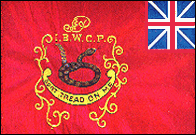
An email from Pui O, the land that time forgot, reminds me of a brief conversation I had one evening years ago sitting in a Central bar favoured largely by non-Westerners. Next to me, a blonde woman was trying to train a somewhat younger white man to pronounce the peculiar vowel sound in Cantonese words like yuen, suen, yuet, suet, etc. I leaned across to the student.
“Make your mouth round as if you’re going to say ‘owe’,” I advised. He did. “Now, without moving your lips at all, try to say ‘eeeeee’.” And it worked, just as it did in French class all those years ago, when we struggled with the second person singular, ‘tu’.
Helped by this dazzling pedagogical method, the lady subsequently became Hong Kong’s leading Norwegian teacher of Cantonese, and an occasional broadcaster, writer and what I will call ‘good-time gal’, the thesaurus failing to provide anything more delicate. And now she has a blog, complete with photos of young men that might send female readers wild with lust (or, I suspect, not – but who am I to say?) each under the headline ‘dude’. Pronounced, of course, dued.
“Look Muffy – a free newspaper for us!” The non-Chinese reading masses pouring down the Mid-Levels Escalator squeal with delight as the wizened crones who dole out AM730 and Metro thrust copies of the new-look Standard at them. Eagerly flicking through the pages, they soon find the paper to be an acceptable, if limited and brief, read. In other words, like all free papers. But it is also, in substance, no different from its predecessor. Thus, it becomes clear, the Standard has in fact been a free paper all along – it’s just that no-one noticed.
With that excitement over, Hong Kong’s hard-working and clean-living middle classes continue gliding down towards the gilded palaces of commerce in Central in which they create the wealth that keeps the Big Lychee’s bloated Government bureaucracy, rapacious cartel-owning tycoons and indolent and parasitic public housing tenants in the comfort to which they are accustomed. The big debate today is Anson Chan. Will she run in the by-election for the Hong Kong Island Legislative Council seat left vacant by the death of Ma Lik?
We all agree that she seems to be waiting. Partly for her former Civil Service colleague Regina Ip to confirm that she will run, but mainly to see whether the pro-democracy rabble are capable of nominating her cleanly and efficiently, without collapsing into an embarrassing heap of squabbling juveniles. Regina, for all her forceful personality and hairstyling, has nailed her colours to the pro-Beijing mast and would be an easy opponent to beat in the wealthiest, most cosmopolitan, educated, liberal-bourgeois, pro-universal suffrage electoral district in town. Loyal supporters of the patriotic cause are scarce on this side of the harbour – a few crotchety old Fujianese in North Point, some shabby old Chiu Chow moneygrubbers in Western and that’s about it. But someone among the pro-democrats will always seek and find some highly principled reason to undermine the chance of an easy victory.
As the commuters reach the end of the magic moving walkway over Queens Road, we conclude that an Anson-versus-Regina race would be fun. The Democratic Alliance for the Blah Blah of Hong Kong see the saintly Chan as a former running dog of the colonial regime, yet, in Ip, their Mainland masters will be imposing just such a one on them. Ever since the handover, they have been kicked in the teeth for their devotion to the Communist Party – forced to support an incompetent capitalist tycoon and then a smug knight of the imperialist British realm as Chief Executive. It doesn’t say much for the pro-democrats that they, too, have to resort to an opportunistic ex-bureaucrat for want of a more viable candidate who is willing to run.
What does the Standard have to say about it all? Several of us run back up the steps to retrieve our copies from the garbage bins. Scowling scourge of suffragists Xu Simin has died. That’s a fact. But on Anson, no – the free sheet doesn’t offer its readers long-winded, abstract and idle conjecture. For that, you have to pay.
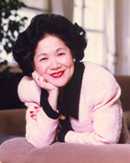
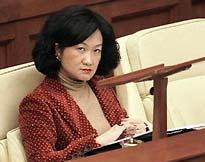
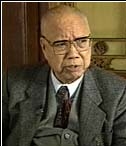
Raymond Wu of ‘dog biscuits ‘ fame, then DAB boss Ma Lik, and now the grumpy and venomous Xu Simin. It would be tempting to think a higher intelligence is at work here, pushing the buttons that consign leading members of the pro-communist patriotic community to the grave as retribution for their undisguised loathing of Hong Kong and its people. The fading of such dinosaurs into history does not, however, mean the Almighty is on the side of the oppressed masses. As unreconstructed, black-hearted throwbacks disappear, the remaining pro-Beijing camp looks altogether more modern and presentable, especially given the gradual infiltration of the city’s bureaucratic caste into its traditional down-market, greasy haired ranks. The Good Book – the other one, that is – vaguely predicted the development of an alliance between the former colonial running dogs and the patriots as the Big Lychee’s natural ruling order, and it would appear God agrees.
And who can doubt His good judgement? When it comes to visionary activity, Hong Kong’s leaders make the creator of light, the heavens, Earth, waters, plants, winged birds and creeping things in six days look hands-off. Much to the alarm of the city’s impossible-to-please, mainly gwailo, chattering classes, the Government increases its stake in Hong Kong Exchanges and Clearing. The logic would appear to be something along these lines…
# The Mainland stock market is undergoing a massive bubble, with prices doubling every year, not least because many of the listed companies have abandoned their original businesses in favour of stock trading
# With the help of cooperation, partnership, occasional use of big words like ‘arbitrage’ and bare-faced, stomach-churning pleading, shoe-shining and mewling like kittens, Hong Kong officials might be able to induce China’s leaders to let their hopeless city have a bit of this bubble for itself, so stock prices will zoom up here too and everyone will be rich and happy without actually doing any work, like before the handover, and everyone will pat these great statesmen on the head and say how clever they are running Hong Kong better than the British. At last.
Wed, 12 Sep
Meanwhile, Hong Kong officials launch a major counter-attack on the deluded foreign bores who dare to question the brilliance of the decision to increase their holding in Hong Kong Exchanges and Clearing. The Standard gets an interview with Financial Services Secretary Chan Ka-keung, who explains that the move is in line with the “Action Agenda on China’s 11th Five-Year Plan and the Development of Hong Kong.” So the nationalization of the bourse is required as part of a Stalinist system of economic centralization, along with targets for tractor production and collectivization of peasants’ cabbage patches. My eyes roll with exasperation – why didn’t they just say so in the first place?
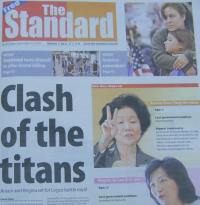

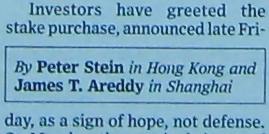
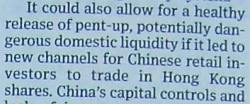
Is it a coincidence that my Wall Street Journal Asia this morning was also handed to me, gratis, by one of the wizened crone free-newspaper brigade?
Thurs, 13 Sep
“I’ve got a theory,” I tell delectable Administrative Officer Winky Ip as we tuck into old Mrs Ng’s fish congee at Yuet Yuen Restaurant. “And that is – the Government’s ceaseless search for new roles for the Hong Kong economy is actually a search to find new roles for itself.” This is such a pithy and clever comment, especially at this time in the morning, she cannot fail to be impressed. However, I get a dismissive glance, followed by a hint of a smile. She has just attended her six-monthly Condescending Stare Refresher Course, she says, rising to step out the door and make a phone call.
A file sits invitingly on the table. My mother always told me that looking at someone else’s private papers was loathsome, dirty and immoral. To which I would add – usually boring. But my attitude is that if you leave it on the table, you probably want me to take a peek. And, without wishing to sound too Rumsfeldian, I want to know what I think you want me to know, though of course I don’t want you to know that I know what that is. So, while making a great show of dabbing chili sauce onto noodles with the chopsticks in my visible hand, I idly browse the sheaf of documents. Most of it is predictably dull – an application for an increase in air-conditioning allowance, for example. Two things stand out.
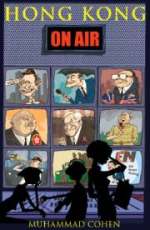
Like sharks attracted by the smell of blood in the water, chattering trouble-makers swarm around the Hong Kong Government’s increased stake in HKEx. After its pro-interventionist petit mal on Wednesday, the Wall Street Journal Asia finds its ideological bearings again and spies a Beijing takeover of the Big Lychee’s bourse. It is joined by The Economist, which sees clout for the Mainland authorities as a quid pro quo for IPOs, privileged access to investment funds and other free lunches that will spare Hong Kong the nightmarish horrors of having to compete.
Few things make Hong Kong bureaucrats salivate so much as the idea of getting their city at or near the top of a list. It is the instinct that drives the obsession with hubs (cultural, creative, tech, Chinese medicine, health care, etc). For evidence that this is a sign of low self-esteem, desperation, stupidity and general patheticness, we need look no further than Singapore, whose despotic rulers decreed years ago that their humble subjects must henceforth donate some of their hard-earned wealth to foreign exchange traders – in the form of tax breaks – to entice the money changers to the Lion City from (not least) Hong Kong. Magically, Singapore rose up the ranks of global forex centres. To celebrate, citizens were allowed to dance on bar tops and look at Cosmopolitan for a day before canings resumed.

Having finally tossed out all the dusty old gin bottles left behind by the Brits, the city’s new regime are now getting to grips with disposing of positive non-interventionism. The half-Romanian Executive Council member CY Leung describes reliance on market forces as “risky.” Other notables in the new order have hailed the chance for Chinese to prove they can do a better job than their hands-off predecessors. The gwailos hurling abuse about intervention have their own agenda. Everyone knows foreigners want to keep China down. The argument goes beyond economic principle.
I DECLARE the weekend open and devoid of bureaucratic guidance.
And more.